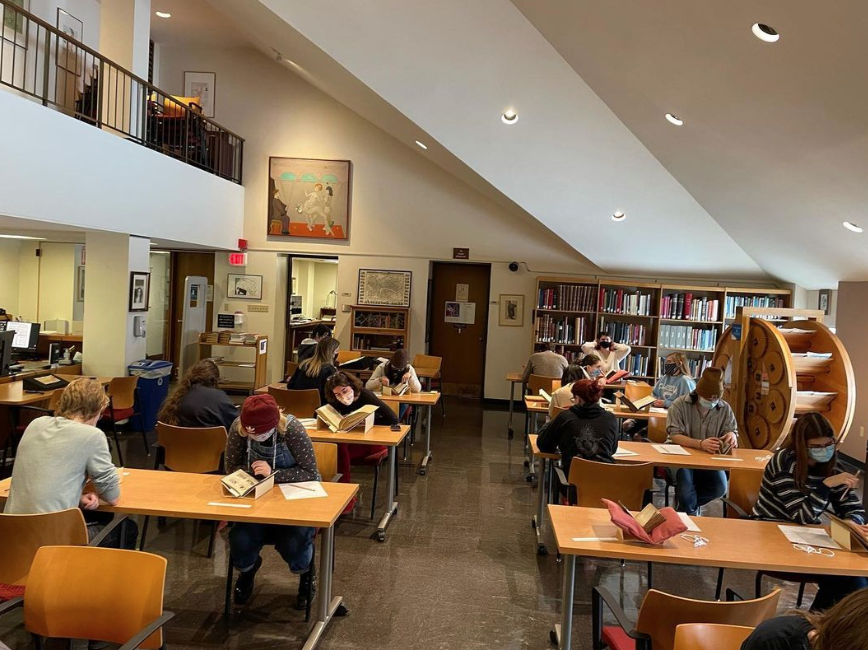The University of Rochester is well known for its exceptional STEM courses and world-class research, specifically in the natural sciences – but the amazing opportunities for research in the Humanities and Social Sciences is a little less known. As a junior, double-majoring in English Literature and Anthropology (Humanities and Social Science) I have been able to conduct research alongside professors as well as create my own independent research.
When I first heard about all the innovative research the University of Rochester has to offer, I initially (and mistakenly) believed that I would not be able to participate in any of it. Before beginning my undergraduate studies, I envisioned research as being lab coats, microscopes, or some sort of robots, but research at Rochester can, and is, so much more than that!
In the spring of my sophomore year, I took advantage of the English Department’s four-credit, Independent Research program and conducted research on medieval literature and visual art at Robbins Library, the University of Rochester’s medieval library. The English Department offers its majors the chance to complete either an independent research project or internship in place of a major elective course. Past students have interned or conducted research at several of the University’s libraries, a local TV station, Memorial Art Gallery, and dozens of other exciting organizations.
As a research intern at Robbins Library, I worked directly with the head librarian and learned the ins and outs of caring for archival material, properly storing books, and gained insight into medieval literature and art. Apart from learning from my advisor and helping out around the library, I created an online art exhibit based on my own research on the art pieces housed in Robbins Library. This research opportunity allowed me to explore aspects of the Humanities I wouldn’t have had access to through a standard curriculum.
I loved my experience conducting research through Robbins Library and gained invaluable skills and confidence to explore academically, which has allowed me to continue expanding my interest in research. This summer I will be working as a research assistant on an archeological dig for six weeks in Bermuda! For over ten years, the University of Rochester’s History Department has sponsored a group of students interested in research to work on an archeological field site from the colonial time period. This project is getting national funding and our findings will be published—not to mention I get the chance to spend the summer in Bermuda for free. I am beyond excited to begin the next phase of my work as a researcher through the University of Rochester and cannot wait to see what I will learn next!

